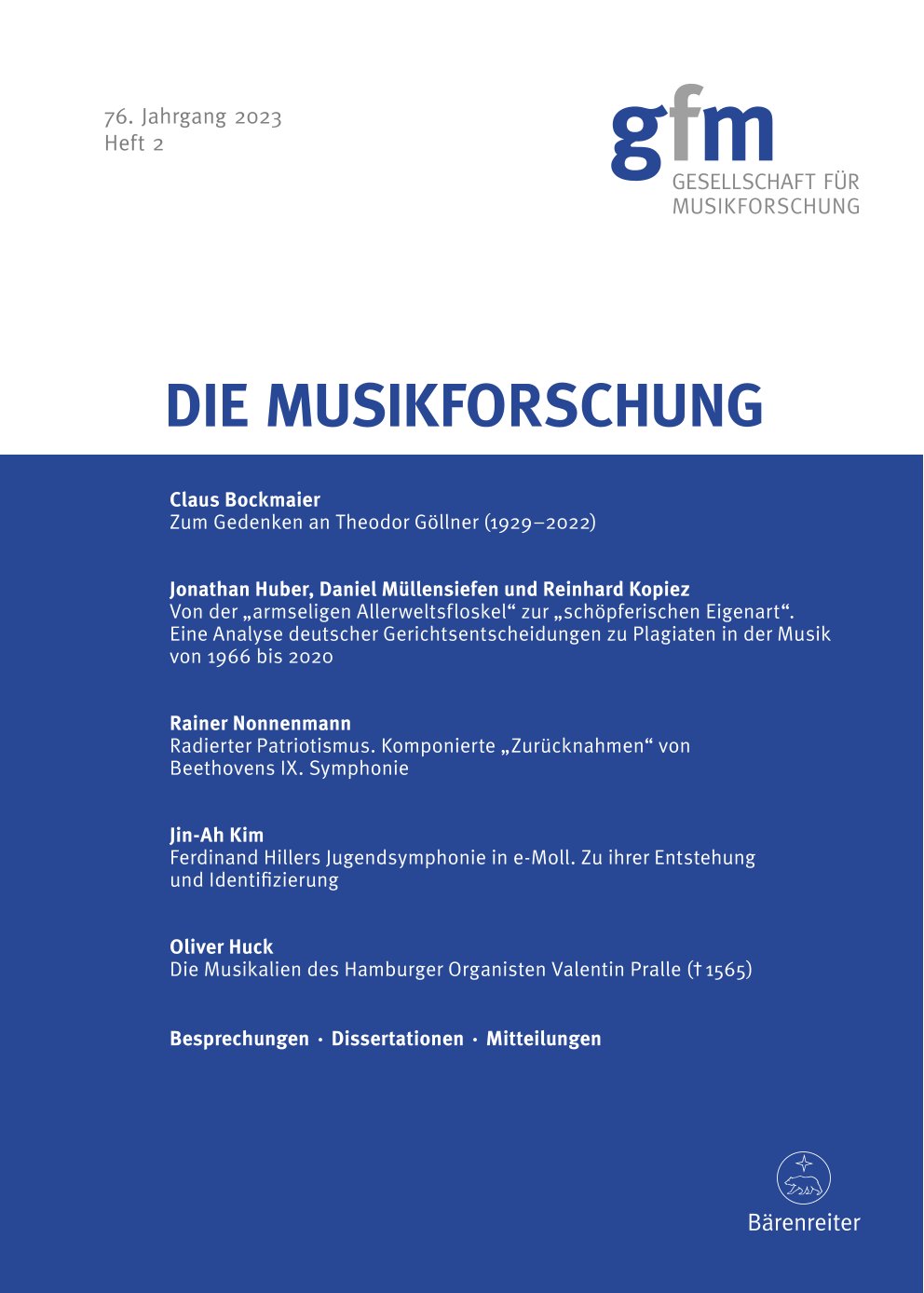Radierter Patriotismus
Komponierte „Zurücknahmen“ von Beethovens IX. Symphonie
DOI:
https://doi.org/10.52412/mf.2023.H2.3087Schlagworte:
Beethoven, Doktor Faustus, Hans Werner Henze, Ode to Joy, 9. Sinfonie, Theodor W. AdornoAbstract
In his late novel Doktor Faustus (1947) – written in exile in the USA during the Second World War – Thomas Mann has the fictional “German composer” Adrian Leverkühn “take back” Beethoven’s Ninth Symphony with his last cantata “Dr. Fausti Weheklag”. The humanism of the “Ode to Joy” with its final exultation “Alle Menschen werden Brüder” had been discredited by dictatorship, terror, war and the Holocaust, and by patriotic and nationalistic appropriations by various political systems. In the course of Germany’s coming to terms with its past – the so-called “Vergangenheitsbewältigung” – from the mid-1960s onwards, a number of composers reacted to the scandal of the misuse of this major classical work of art and its liberating message with compositions whose direct reference to Beethoven’s Ninth can also be understood as “retractions” of this symphony. This article investigates different approaches to Beethoven’s controversial work in Bernd Alois Zimmermann’s Requiem für einen jungen Dichter (1967–1969), Hans Werner Henze’s Sinfonia N. 9 (1995–1997), Andreas F. Staffel’s Beethoven off set – oder: ich nehme sie zurück die neunte Symphonie (2015–2019) and many other works.






